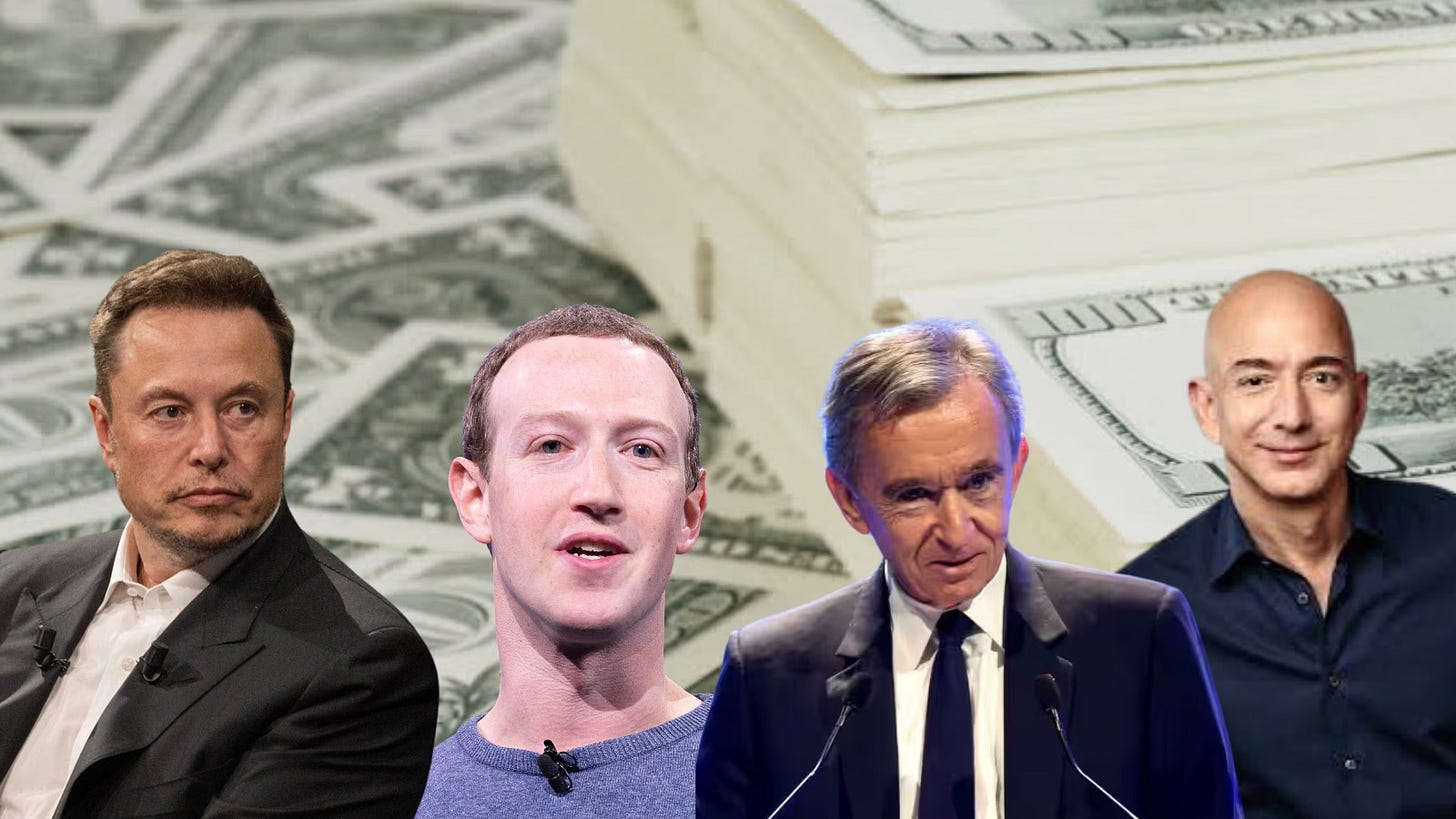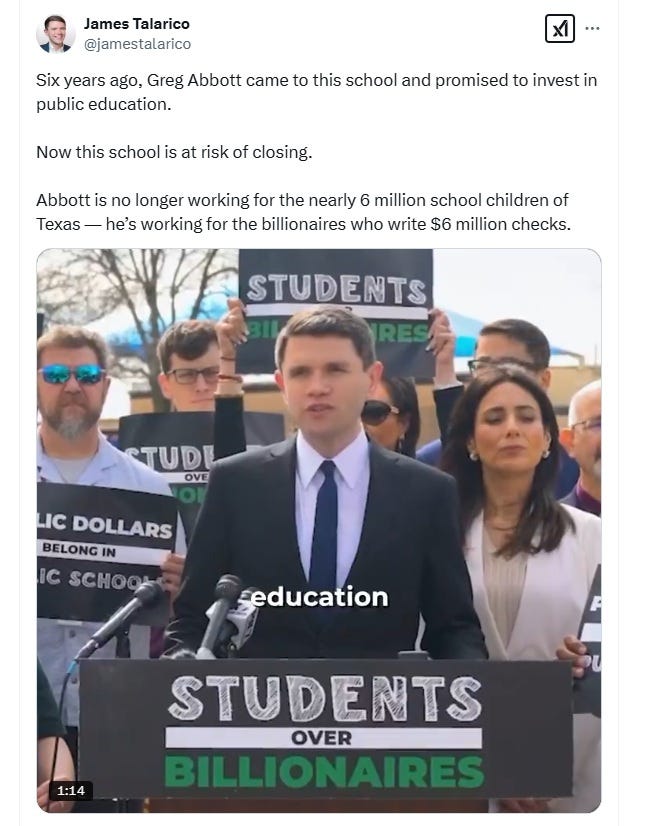The Billionaire Backlash
From marching through federal agencies to dismantling public education, the spector of billionaires-gone-wild is spurring bipartisan backlash
Yesterday, my husband was out walking when two neighbors pulled him aside. Did he know anything about what was going on with the government? they wanted to know. They’d heard the disturbing news reports about Elon Musk marching through various agencies, including ones housing their own personal information.
While we live in a blue state, our part of Massachusetts is decidely purple with a deep vein of libertarian populism. In the lead up to the election, an assortment of Trump flags—Make America Great, Keep America Great, Let’s Go Brandon, Never Surrender—fluttered all around my adopted hometown. Like many communities in Massachusetts, Gloucester swung right. And yet the antipathy towards billionaires is thoroughly bipartisan.
Head down to Texas, where legislators are on the cusp of enacting a deeply controversial, mind-bogglingly expensive school voucher program and you’ll hear the same suspicion of billionaires.
And it isn’t just Democrats, like James Talarico, who are sounding the alarm. I’ve spent the last month interviewing conservatives all over the state and have lost count of the number of times I’ve been told that vouchers are part of the ‘globalist billionaire agenda.’ As many of these conservatives see it, their elected officials no longer represent them but are instead carrying out the marching orders of an assortment of billionaires.
In Tennessee, which became the latest state to enact a ginormous school voucher plan, a conservative legislator bemoaned the fact that “an out-of-state lobbyists, backed by hundreds of millions of dollars from shadowy billionaires” had essentially made it impossible for him to represent his own constituents.
It’s been 15 years since the disastrous Supreme Court decision, Citizens United, ‘unshackled’ big donors. The tide of money has transformed our politics. Elon Musk alone pumped $290 million into his effort to get Donald Trump elected, a staggering investment that he’s now cashing in on. But the ever-increasing-influence of billionaires has also allowed them to translate their ideological visions, into state-level policies—school vouchers being chief among them—public opinion be damned.
Consider, for example, one Jeff Yass. The wealthiest man in Pennsylvania, Yass is just one of the billionaires now “swooping in” to fund Texas Governor Greg Abbott’s school voucher push. An eye-opening profile of Yass last year described his crusade this way:
Convinced that a free-market school system is the solution to Philly’s — and the country’s — big problems, the incredibly wealthy, notoriously secretive suburban businessman is bankrolling an initiative to change the way we teach children here and across the nation. Could he be right?
That we have public schools because the ‘free-market school system’ we started out with was such a failure is of no consequence. Yass himself is utterly convinced of his own rightness. When asked whether he worried about the consequences of electing far-right lawmakers who now seek to slash programs that benefit kids—say, school lunch programs, and Head Start (sound familiar)—Yass was blithely dismissive. “[T]he school choice issue is so much bigger than anything else that I don’t really consider those things.”
British journalist George Monbiot described this way of thinking as the “plutocratic mindset”:
Once money swarms your identity, it’s hard to contemplate the idea that you could have made a mistake, let alone to own it. Your critics become your enemies, your mind snaps shut.
But the plutocratic mindset is also an awkward fit for our moment of populist rage. Listen to self-styled MAGA architect Steve Bannon and you’ll hear him railing against the “oligarchs.” Does that extend to the oligarchs who are intent on dismantling our public schools? Some of Trump’s own supporters certainly think so. “Vouchers aren’t MAGA,” as Texas teacher Brett Guillory told me recently. “Not even close.” If you take MAGA-style populism seriously—and I certainly do—then this seems like a gaping vulnerability.
When my husband met up with our worried neighbors yesterday, it wasn’t long before the conversation shifted from ‘what the hell is going on’ to ‘what the hell can we do?’ “I’m ready to fight,” as one neighbor put it. “Are you?”





